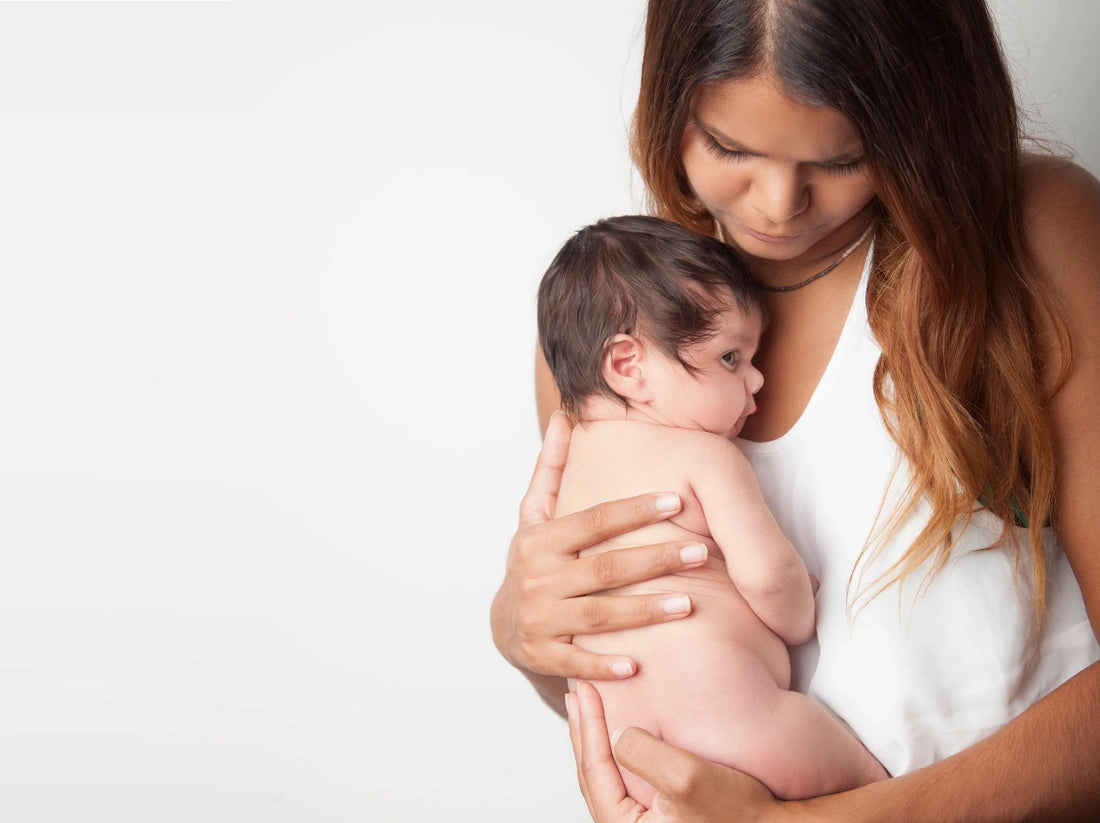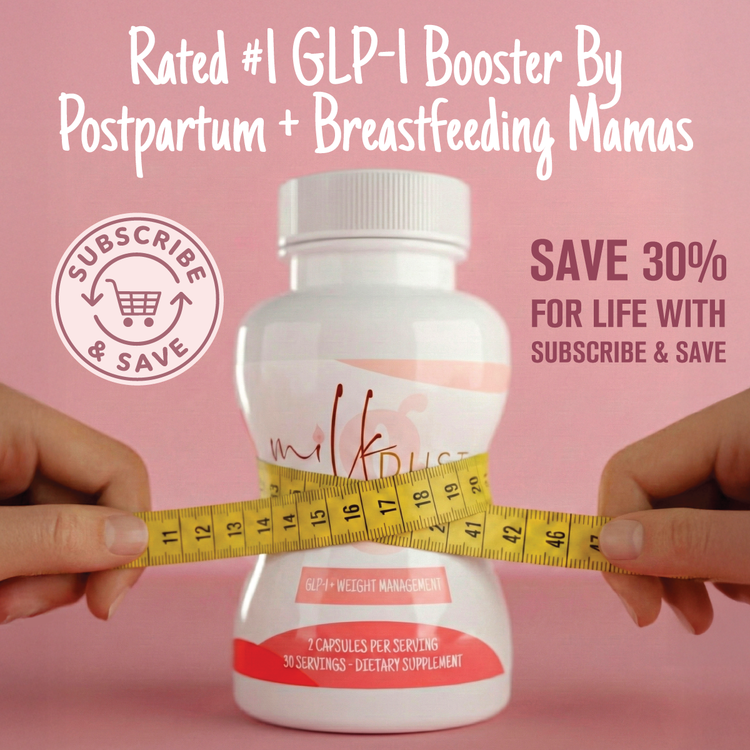The concept of postnatal depletion is gaining recognition surrounding postpartum health and wellness. Postnatal depletion is a very important topic that needs to be addressed for every new mama, especially if you breastfeeding. Because the concept of postnatal depletion is fairly new, we are going to go over what postnatal depletion is, and what specific nutrients to focus on to combat the effects.
What is Postnatal Depletion?
Postnatal depletion covers more than the nutrients a pregnant and postpartum mother has in her body. It also covers stress, fatigue and emotional stress. Pregnancy requires extra nutrients for a mother to produce and grow a new life. If a new mom doesn't consume enough nutrients, they are taken from the mother to support the baby. Mother's bodies are designed to put the growing baby first. Postnatal depletion is actually very normal, and the postpartum period is a time to replenish those nutrient stores. Postnatal depletion is the normal process of pregnancy and birth giving everything to the growing baby. Once the baby is born, a new mother needs to replenish and consume healing nutrients to recover, as well as breastfeed.
Dr. Oscar Serrallach from Australia brought the idea of Postnatal Depletion to main stream media through Goop. He states,
The placenta passes many nutrients to the growing baby during pregnancy, tapping into the mom’s “iron, zinc, vitamin B12, vitamin B9, iodine, and selenium stores—along with omega 3 fats like DHA and specific amino acids from proteins.” A mom’s brain has been shown to shrink during pregnancy as it supports the growth of the baby and is socially re-engineered for parenthood.
Goop
Postnatal Depletion Symptoms:

There are symptoms of postnatal depletion, but often times they go ignored. Many new mothers push through:
- exhaustion
- anxiety
- difficulty breastfeeding
- headaches
- aches and pains
- depression
- anxiety
- lack of focus
as a part of having a new baby. And yes, some of it is to be expected. In the beginning stages, the signs of depletion are normal, but should be helped as healing and replenishment occurs.
How to Treat Postnatal Depletion:
Treating postnatal depletion involves more than just diet and nutrients, but diet and nutrients are a big part of treatment. There are emotional and psychological aspects of rest and healing that need to be considered for new mothers as well.
Treating Postnatal Depletion Involves:
- adequate psychological rest
- physical rest
- laughter and relaxation
- walking and yoga
- healing foods and nutrients
Postnatal Depletion Recovery Starts With Nutrition:

Focusing on the proper nutrients postpartum is essential for healing and recovering from postnatal depletion. We have a full list of nutrients that are essential for breastfeeding mamas, and these nutrients are also essential for postpartum recovery. We actually have an ebook on the key nutrients you need for both pregnancy and lactation, which we highly suggest downloading and reading!
Here is a rundown of the nutrients you need to replenish postpartum:
- Increased caloric demands around 500 calories
- Vitamin C 115 mg/day
- Chromium 44 μg/day (AI)
- Magnesium 360 mg/day
- Zinc 13 mg/day
These are the top nutrients a new mother can focus on to help combat postnatal depletion, and why we created Milk Dust.
How Milk Dust Helps Combat Postnatal Depletion:
Milk Dust does more than support a healthy milk supply and reduce sugar cravings. The main goal is actually much larger. Milk Dust aims to replenish depleted nutrient stores by offering the most important nutrients breastfeeding mamas need to thrive and heal. Because of the nutrient density of our protein powder, we can help diminish sugar cravings, which are often a result of missing vitamins and minerals. Milk Dust also increases your milk supply with a unique blend of herbs and ingredients that support lactation. Milk Dust is a protein powder, so it tastes best blended in a smoothie for a full meal replacement if needed. In addition, it is super easy to blend up and requires little prep and clean up. Exactly what a new mommy needs to help make life simpler.
What other foods help with postnatal depletion?
Some of the top foods to combat postnatal depletion include:
- eggs
- salmon
- beans and legumes
- yogurt
- chia seeds
- pumpkin seeds
- nuts
- chicken and turkey
- spinach
- berries
These foods are all very nutrient-dense, which means that you are mainly eating pure vitamins. No extra sugar, fat or processed ingredients. Milk Dust also offers some of these super foods like pumpkin seeds, chia seeds, blueberries and spinach. Adding these foods to your diet daily will really help with healing and lactation postpartum.
Postpartum depletion isn't a medical term - yet, but a state many mamas find them struggling through. Supplements like Milk Dust, combined with foods that nourish your body is the best way to tackle postnatal depletion from a nutrition stand point.
Postnatal depletion also includes exhaustion and fatigue. Of course that is to be expected with a new baby, and nourishment is the foundation of energy and emotional health.













